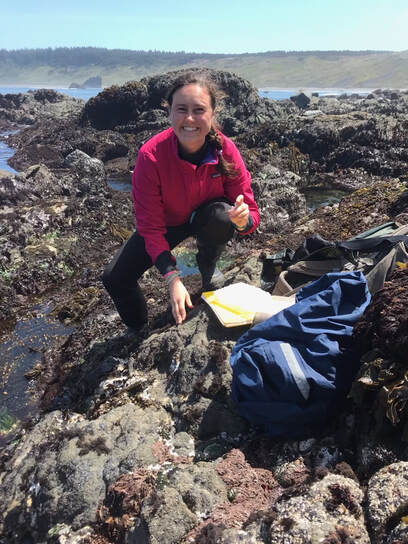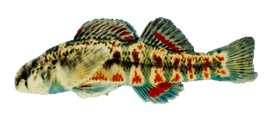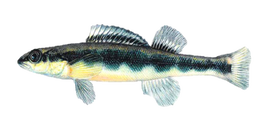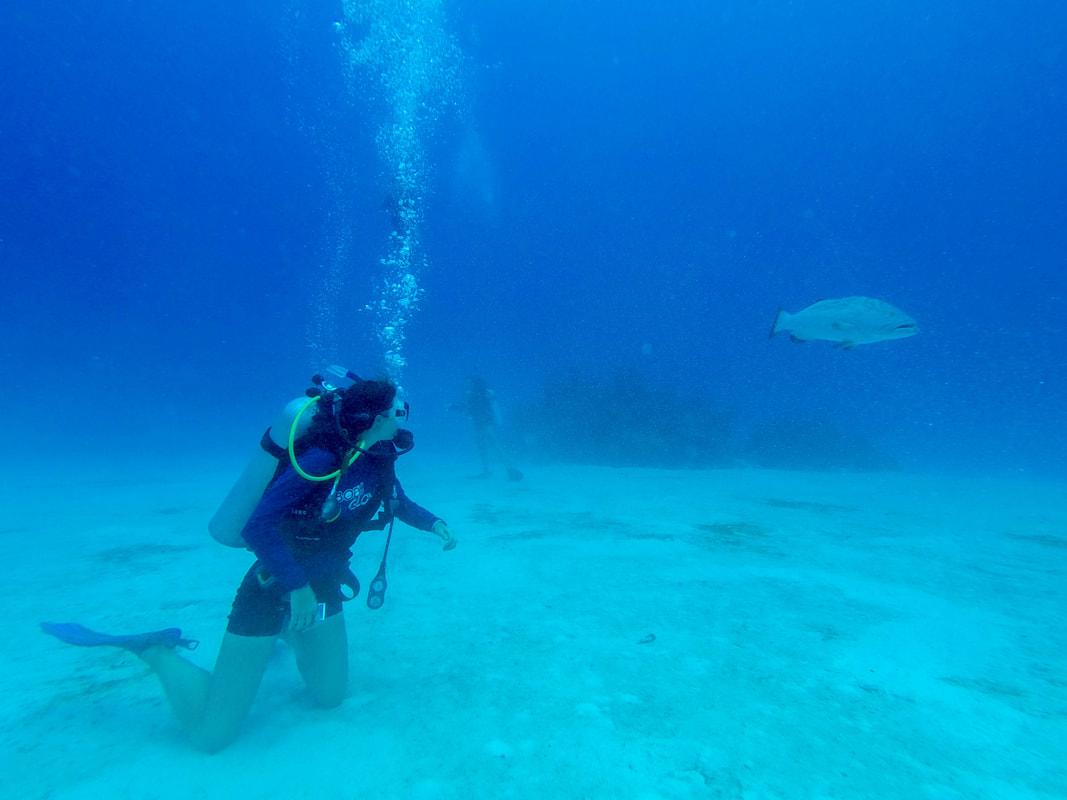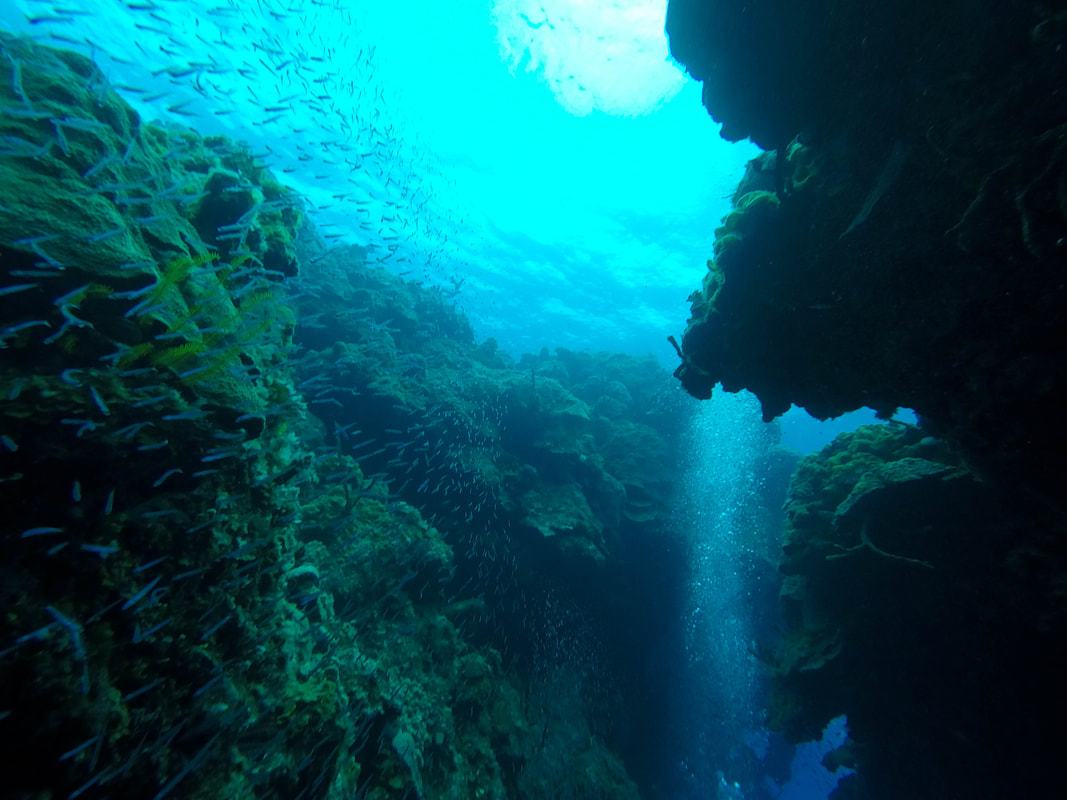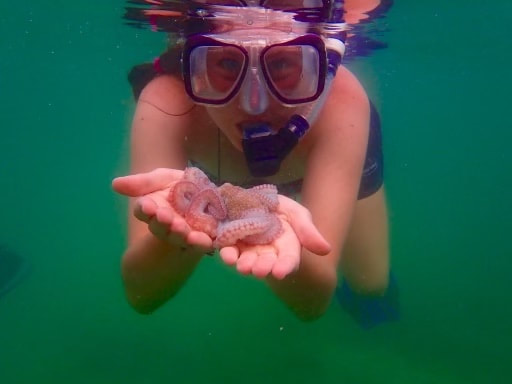MSc 2020, Oregon State University
Integrative Biology
Integrative Biology
|
Emily earned her Master's of Science in marine ecology and genetics under Bruce Menge and Felipe Barreto. Her two-chapter thesis combined field work, genetic sequencing, oceanography, and ecological analysis to investigate the population structure and mating patterns of Leptasterias sp., a six-rayed brooding sea star. Using microsatellite markers, she determined that Leptasterias along the Oregon coast have strong genetic structure (high divergence between geographic locations), relatively high diversity, and high rates of multiple paternity. Her work lays the foundation for future studies of local adaptation of this species in the face of climate change. While at OSU, she also studied ocean policy and science communication under Dr. Jane Lubchenco.
Publication: Boring, Menge, and Barreto (2023). "Genetic evidence for multiple dispersal mechanisms in a marine direct developer, Leptasterias sp. (Echinodermata: Asteroidea)," Marine Biology 170(11). Emily's Thesis Defense: |
Emily received a National Science Foundation Graduate Research Fellowship (2018) to support her MSc research.
|
|
B.S. 2018, Yale University
Ecology & Evolutionary Biology Emily completed her honor's thesis in Ecology and Evolutionary Biology under Thomas Near at Yale. Using next-generation whole-genome analysis (ddRADSeq) and mitochondrial sequencing, she investigated the phylogenetic structure of two freshwater darters, Percina kusha and Percina etowah. Her work resulted in the identification of a new species of darter, P. freemanorum, which is distinct morphologically and genetically from its sister species P. kusha. Publication: Thomas J. Near, Daniel J. MacGuigan, Emily L. Boring, Jeffrey W. Simmons, Brett Albanese, Benjamin P. Keck, Richard C. Harrington, Gerald R. Dinkins (2021). "A New Species of Bridled Darter Endemic to the Etowah River System in Georgia (Percidae: Etheostomatinae: Percina)," Bulletin of the Peabody Museum of Natural History, 62(1), 15-42. |
Teaching
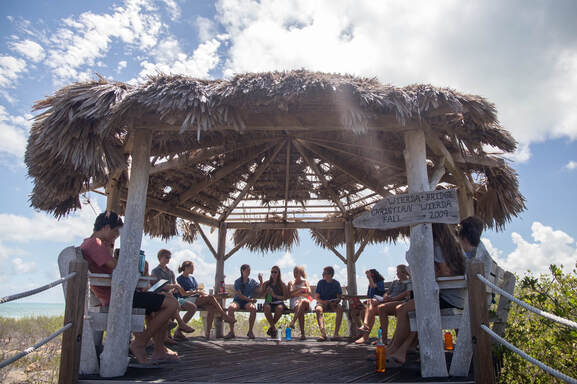
Emily worked as a Teaching Fellow (2017) and Lead Teacher (2018) for Marine Ecology at The Island School, a semester program for high schoolers on South Eleuthera, The Bahamas. She developed and led curriculum at the intersection of creative writing and marine ecology, aligned with the school's commitment to "sustainability, intentional community, and sense of place,". She is passionate about place-based education and interdisciplinary, hands-on learning. Emily is a PADI Advanced SCUBA diver.
Emily also worked as a Teaching Fellow for a university-level Introductory Biology course during her MSc at Oregon State University. She completed a year-long professional development training with a focus on inclusive pedagogy.
Emily served as a Teaching Assistant under Verlyn Klinkenborg for "The Genre of the Sentence," a nonfiction writing workshop seminar at Yale University, in Fall 2022.
Read Emily's Teaching Philosophy statement here.
Emily also worked as a Teaching Fellow for a university-level Introductory Biology course during her MSc at Oregon State University. She completed a year-long professional development training with a focus on inclusive pedagogy.
Emily served as a Teaching Assistant under Verlyn Klinkenborg for "The Genre of the Sentence," a nonfiction writing workshop seminar at Yale University, in Fall 2022.
Read Emily's Teaching Philosophy statement here.
